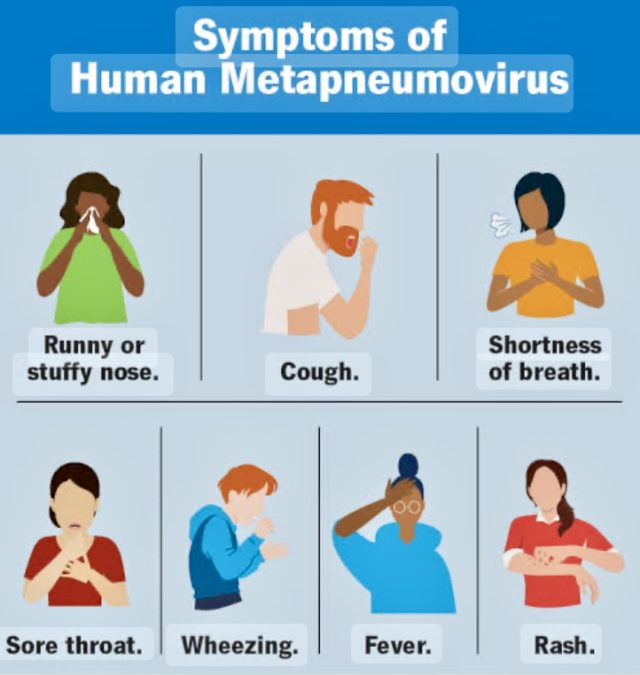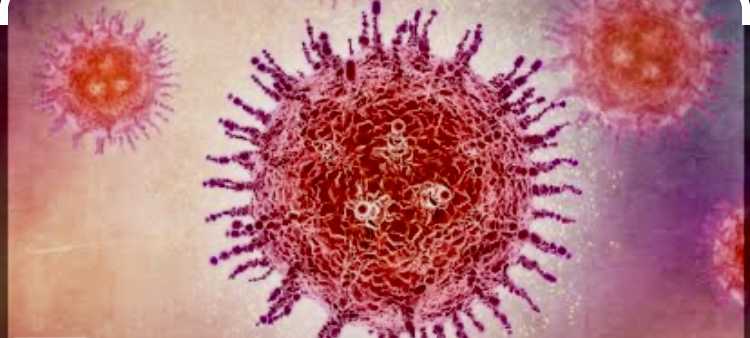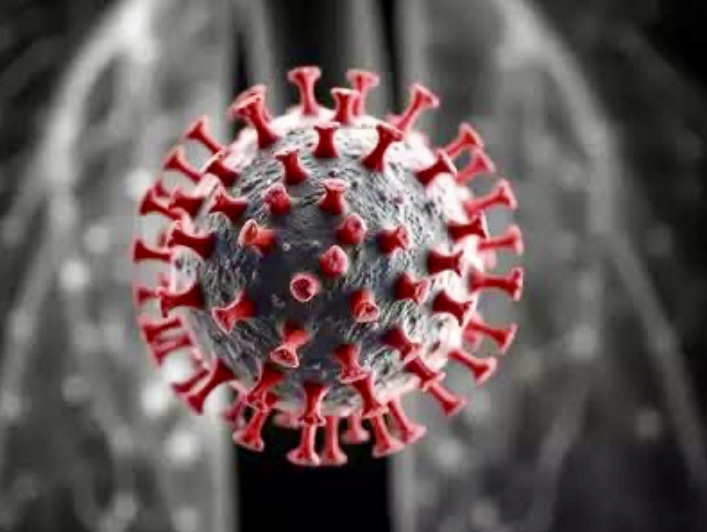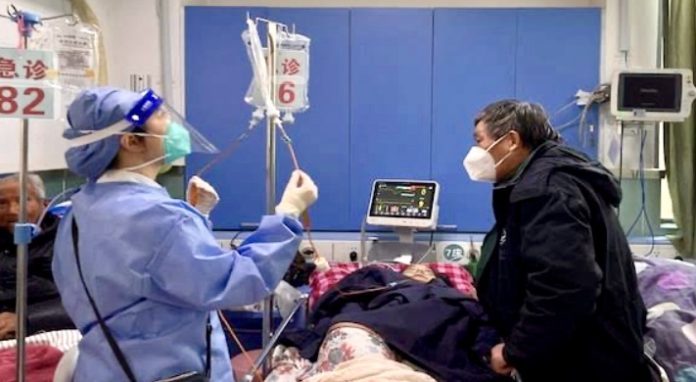
By DK Gupta
Human Metapneumovirus (HMPV) has entered India also. Two kids in Karnataka and one in Ahmedabad. All three patients are under one year of age.
China is experiencing a rise in respiratory infections, including Human Metapneumovirus (HMPV), especially among children under 14 and seniors. Other viruses such as rhinovirus and coronaviruses have also been detected. Authorities in China have initiated monitoring systems for pneumonia of unknown origin to improve preparedness compared to the COVID-19 outbreak.
Human metapneumovirus (hMPV) is a type of common respiratory virus that mimics the symptoms of common cold. It belongs to the Paramyxoviridae family, closely related to the viruses that cause measles and mumps. While most cases infected by the virus are mild, some people are likely to get severely sick, especially the first time they get hMPV infection.
The HMPV infection is more common in winters and early spring but can occur at any time of the year. It affects people of all age groups, although infants and young children, older adults, and people with weakened immune systems are more vulnerable. Untreated cases of hMPV can develop into serious complications, such as pneumonia or bronchitis, therefore if your symptoms last for more than two weeks or become severe, seek medical help immediately.
Whether you're looking to safeguard your family against the virus or seeking treatment for your child's existing pediatric human metapneumovirus infection, understanding hMPV is the first step towards effective care.

Understanding Human Metapneumovirus
Human Metapneumovirus is highly contagious and spreads through respiratory droplets, close contact, or contaminated surfaces. Also, once hMPV enters your body, the incubation period lasts between three to six days.
Let's understand its impact on both adults as well as children:
Impact on Adults: Human Metapneumovirus infections in adults can range from mild cold-like symptoms to severe respiratory distress in high-risk groups, such as those with chronic lung diseases and cancer patients.
Impact on Children: Pediatric human metapneumovirusinfection is particularly concerning, as it can cause bronchiolitis, and pneumonia in infants and toddlers.
Causes
Like any virus, human metapneumovirus is contagious, which means it gets transmitted from an infected person. You might get exposed to the virus if you:
● Touch surfaces that contain the virus, such as door handles, phones, etc.
● Touch your mouth, nose, or eyes after you touch infected surfaces
● Come in contact with respiratory droplets from an infected person. It could be through sneezing, spitting, or coughing
● Come in direct contact with infected person, such as shaking hands, hugging and touching
● Human metapneumovirus is seasonal and is more prevalent during winter or early spring months, same time as flu season.
● Infants, young children, and older adults are at greater risk due to weaker immune defenses.
● Individuals with pre-existing conditions such as asthma, chronic obstructive pulmonary disease (COPD), or other respiratory conditions are at heightened risk.
● Individuals with weakened immune systems, such as those undergoing chemotherapy, are more vulnerable.
Symptoms
The symptoms of hMPV often mimic those of the flu or common cold that usually go away between two to five days. The symptoms can vary in severity depending on the individual's age, immune status, and overall health.

However, some of the common symptoms include:
● Cough
● Nasal congestion
● Sore throat
● Fever
● Wheezing
● Headache
If left untreated, symptoms can worsen and cause serious health issues in more severe cases, or patients with compromised immune systems. They may experience
● Difficulty breathing
● Asthma flare-ups
● Respiratory infections such as bronchitis or pneumonia
Diagnosis
Unless you're very sick and hospitalized with hMPV, there's a high chance that you won't even know that you've been infected with the virus. However, diagnosing hMPVinvolves a combination of clinical evaluation and diagnostic testing:
● Physical Examination: Your doctor will look for symptoms like wheezing, fever, and nasal discharge.
● Swab Test: A soft-tipped stick (swab) is used to get a sample from your nose or throat. The sample is sent to the lab for confirmation of the virus.
● Blood Tests: Complete blood counts (CBC) and inflammatory markers help evaluate the severity of the infection.
● Molecular Tests: Reverse transcription-polymerase chain reaction (RT-PCR) tests detect the presence of hMPV RNA in respiratory samples.
● Antigen Detection: Rapid antigen tests help identify the virus, especially in acute cases.
● Bronchoscopy/Chest X-rays: Imaging may be required to rule out pneumonia or other complications in the airways of your lungs.
Treatment for Human Metapneumovirus
Currently, there's no treatment for an upper respiratory infection caused by hMPV. Most people can easily manage their symptoms at home and rest until they feel better. The treatment for hMPV primarily focuses on management of symptoms that includes:
● Coping with Symptoms: Take over-the-counter medications and cough syrups for fever, cough and pain. Nasal decongestants and saline nasal sprays can be used for congestion in the nose.
● Hydration and Rest: Make sure you drink plenty of water and there's adequate fluid intake. Rest is crucial for recovery.
● Oxygen Therapy: For severe cases involving respiratory distress, supplemental oxygen may be required.
● Hospitalization: Pediatric or elderly patients with complications may need hospitalization.

Prevention
You can reduce your risk of getting HMPV by taking these preventive measures:
● Washing/Sanitizing your hands often with soap and water or hand sanitizer.
● Cover your nose and mouth with your elbow while sneezing or coughing.
● Avoid being around or coming in physical contact with an infected person.
● Wearing a mask if you're sick.
● Regularly clean and disinfect high-touch surfaces like doorknobs and mobile phones.
● Consume a balanced diet, exercise regularly, and avoid smoking to strengthen your immune system.
● Don't share towels, food or eating utensils with others.
Prognosis and Recovery Rate
Mild cases of human metapneumovirus usually last 3 to 7 days. If you're very sick, it'll probably take longer to recover. You might also have lingering symptoms, like a cough, that may take a little longer to go away.
Conclusion
Human metapneumovirus is a virus that causes upper and lower respiratory infections. While there's no cure or vaccine for human metapneumovirus, most cases recover within a few days. However, sometimes infants, older people, and people who have weakened immune systems can develop complications, like pneumonia. Therefore, understanding its symptoms, diagnosis, and treatment options is vital for effective management of hMPV. By taking preventive measures and seeking timely medical care, you can reduce the risk of complications and ensure a faster recovery.
The writer is Chairman, Felix Hospital, Noida



